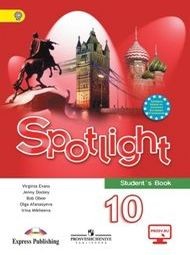
Учебник английского языка для 10 класса, автор – Ваулина, представляет собой увлекательный и структурированный подход к обучению школьников. В нем удачно сочетаются теоретический материал, упражнения для практики и интересные задания, способствующие развитию всех языковых навыков. Это пособие подходит как для самостоятельного изучения, так и для работы на уроках.
ГДЗ по Английскому Языку 10 Класс Модуль 5e Номер 12 Ваулина — Подробные Ответы
Напишите начало и окончание истории под заголовком “Кошмар на фестивале”. Как бы вы сделали их интереснее? Сравните со своим партнёром.
Beginning:
Have you ever had that nagging feeling that something bad is about to happen? Well, last week on my way to the Music Festival, I was filled with anxiety for no particular reason. The journey seemed endless, and nightfall was approaching fast. My biggest fear was the looming darkness. And to top it off, I was making the trip completely alone.
Ending:
By the time I finally reached the Music Festival, I felt surprisingly calm. I was safe and enjoyed myself. On the way back, I couldn’t help but laugh at my earlier worries, remembering how uneasy I had been earlier that day before even arriving at the Festival.
I made my introduction and conclusion engaging by using a rhetorical question, adding introductory phrases, employing a range of past tenses, and building suspense throughout.
Beginning:
Have you ever felt that unease, that sense that something terrible is about to happen? Well, last week on my way to the Music Festival, I experienced that exact feeling, despite there being no real reason for it. The journey to the festival was long and drawn out, and as the evening sky darkened rapidly, I began to feel an increasing sense of dread. The creeping darkness seemed like an unstoppable force, and my mind couldn’t help but focus on it. I couldn’t shake the feeling that something ominous was lurking, even though I had no reason to think so. What’s more, I was traveling entirely alone, which only added to my anxiety.
As I walked down that winding road toward the festival, every sound seemed amplified by the silence of the empty streets around me. The shadows were getting longer, and the thought of being alone in the dark started to feel like an insurmountable obstacle. I kept telling myself I’d be fine, but my mind was racing, imagining all the things that could go wrong. It was a strange mixture of excitement and dread, like my body was bracing itself for some unknown challenge ahead. I told myself it was just nerves, but deep down, I felt uncertain.
Ending:
When I finally arrived at the Music Festival, all my anxieties seemed to evaporate. I had made it there in one piece, and I felt an immense sense of relief. The moment I stepped into the crowd, the music filled the air, and I was immediately swept up in the energy. The festival was everything I had hoped for – lively, vibrant, and full of excitement. I enjoyed every moment, and it quickly became clear that my fears had been completely unfounded.
On the way back, I couldn’t help but laugh at myself. The tension and dread I had felt earlier in the day now seemed so silly in hindsight. The dark streets, the loneliness – they all turned out to be non-issues. It was a bit embarrassing, but I was glad I had overcome my irrational fears. That nervous feeling I’d had on my way to the festival seemed so distant now, like it belonged to someone else. I had arrived at my destination and enjoyed the experience, all while proving to myself that sometimes, our biggest fears are just figments of our imagination.
Reflection:
To make the beginning and ending engaging, I asked a rhetorical question at the start to draw the reader in, used descriptive language to create tension, and relied on a mix of past tenses to keep the narrative dynamic. I also aimed to evoke a sense of suspense by emphasizing the contrast between my worries and the eventual calmness of the event, and I ended on a light, reflective note, demonstrating how we often build up unnecessary fears in our minds.



Оставь свой отзыв 💬
Комментариев пока нет, будьте первым!